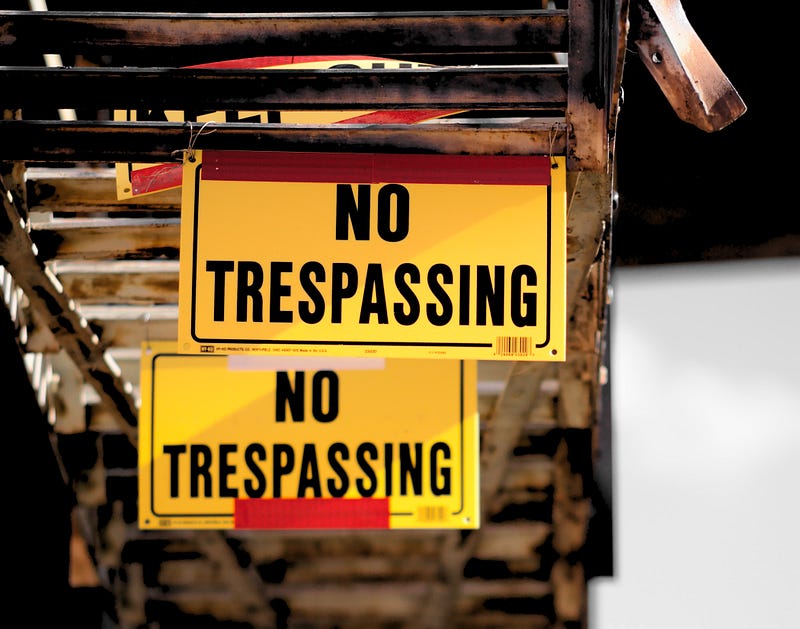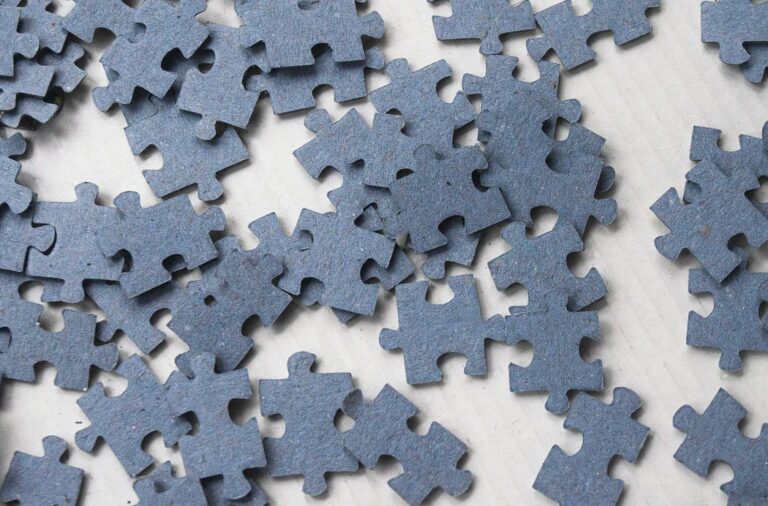Book Appointment Now
5 WAYS BOUNDARIES PROTECT YOUR FROM MANIPULATION

We often hear about boundaries in our daily lives, like when we say, “You’ve crossed my boundaries,” or “Those are my boundaries.” But how exactly do boundaries safeguard you from manipulation?
Firstly, boundaries can be defined as limits we establish to protect ourselves. They can encompass our preferences, values, interests, and anything that defines who we are. Another simple way to look at boundaries is as the line that marks where you end and where others begin.
Boundaries Vs Walls
Let’s discuss the distinction between having healthy boundaries and building walls. It’s important to understand that while both concepts involve setting limits, they differ in their underlying motivations and outcomes.
Having healthy boundaries is a fundamental aspect of self-care and self-respect. It involves recognizing and defining your personal limits, preferences, values, and needs. Healthy boundaries are flexible, allowing for the flow of positive experiences and relationships while protecting you from harm or manipulation. They serve as guidelines that help you navigate interactions and make decisions that align with your well-being.
When you have healthy boundaries, you are aware of where you end and others begin. It’s about maintaining a sense of self, maintaining your autonomy, and honoring your own emotions, thoughts, and desires. These boundaries are based on self-awareness and self-love, as you believe you deserve to be treated with respect and kindness.
On the other hand, building walls is a defensive mechanism that arises from fear, mistrust, or past negative experiences. Walls are rigid and impenetrable barriers that isolate you from others. While walls may provide a sense of protection, they can also hinder personal growth, connection, and genuine relationships. Walls keep both the good and the bad out, including potential positive experiences and opportunities for personal development.
https://biiedwin.gumroad.com/l/BreakingChains
Building walls often stems from a fear of vulnerability, hurt, or rejection. It’s a way of shielding oneself from potential pain by avoiding emotional intimacy or forming meaningful connections. However, this self-imposed isolation can lead to loneliness, a lack of support, and a limited perspective on life.
https://biiedwin.gumroad.com/l/BreakingChains
It’s essential to differentiate between boundaries and walls because healthy boundaries promote self-care, empowerment, and positive relationships. They allow you to establish and communicate your needs, assert your values, and protect yourself from manipulation or mistreatment. Boundaries create a balanced dynamic where you can maintain healthy connections while still honoring your own well-being.
Building walls, on the other hand, can hinder personal growth and healthy relationships. Walls may prevent you from experiencing genuine connections, seeking support when needed, or allowing others to know and understand you on a deeper level.
How Boundaries Protect You from Manipulation
1. Boundaries as a Framework for Acceptable Behavior
Boundaries act as a set of guidelines that define how you expect to be treated and how you will treat others. They serve as a framework for healthy interactions and help protect you from manipulation, mistreatment, and toxic dynamics. Having this framework helps you recognize when you’re being manipulated.
For instance, let’s say you have a boundary that states others should repay borrowed money. If your friends repeatedly take your money without being accountable, it becomes evident that they are crossing a boundary and potentially manipulating you.
In such a situation, recognizing and enforcing your boundary allows you to address the issue assertively. By holding your friends accountable for their actions and communicating the importance of respecting your financial boundaries, you can protect yourself from being taken advantage of and maintain healthier relationships.
Another example is boundaries protect your from falling into the trap of love bombing. Imagine you start dating someone new, and they shower you with constant compliments, gifts, and attention. At first, it feels amazing and flattering, but as time goes on, you start feeling overwhelmed and suffocated by their constant presence and demands for your attention. By having clear boundaries in place, such as maintaining personal space and setting a healthy pace in the relationship, you can protect yourself from falling into the trap of love bombing. These boundaries help you maintain a sense of independence, ensuring that you can evaluate the relationship objectively and make decisions that prioritize your own well-being.
2. Boundaries as a Reference Point for Detecting Manipulation
Boundaries act as reference points for detecting manipulation. Imagine you’re in a relationship where your partner constantly dismisses your feelings, making you doubt your own emotions. They may blame you for things you didn’t do, manipulate you with fake promises about the future you will have together, or twist situations to make you feel guilty.
However, with clear boundaries in place, you have a reference point to detect manipulation. When your partner invalidates your emotions or tries to shift blame, your boundaries remind you that this behavior is not acceptable or healthy. They empower you to stand up for yourself, recognize the manipulation, and take steps to protect your emotional well-being. Boundaries act as a compass, helping you navigate relationships and safeguarding you from falling victim to manipulation.
Boundaries act as the crucial red line that signals when manipulation is occurring. When a manipulator attempts to stealthily cross that boundary, you can clearly see what’s happening because you know your boundaries, and you recognize that they are encroaching on your personal space. By understanding and upholding your boundaries, you are equipped with the knowledge and awareness to identify when someone is overstepping and trespassing into your territory. It allows you to assertively protect yourself and maintain a healthy sense of ownership over your emotions, thoughts, and actions.
3. Boundaries as a Baseline for Decision-Making
Boundaries not only serve as a protective measure but also establish a baseline for decision-making. Let’s say you’re in a relationship where your partner consistently violates your boundaries by disrespecting your personal space, manipulating your emotions, and undermining your self-worth. You have set clear boundaries that encompass respect, trust, and open communication. However, despite expressing your needs and concerns, your partner continues to cross those boundaries repeatedly.
In this situation, your boundaries empower you to make informed choices that align with your self-worth and well-being. You recognize that the repeated violation of your boundaries is not something you are willing to tolerate or accept in a healthy relationship. With a firm understanding of your boundaries, you can gather the strength and clarity to make the decision to leave the manipulative relationship.
By asserting your boundaries and making the choice to exit the toxic dynamic, you communicate to the other person that you value and respect yourself. It sends a powerful message that you are aware of your worth, understand your limits, and refuse to allow yourself to be manipulated or mistreated. In essence, boundaries become the guiding principles that enable you to make significant decisions and take actions that prioritize your emotional well-being and personal growth.
Boundaries not only provide clarity and protection but also simplify the decision-making process by helping you stay connected to your core values and what you stand for. When you have well-defined boundaries, you have a deep understanding of what is acceptable and what is not in your life.
For example, let’s say you have a boundary around honesty and transparency in your relationships. If you discover that a friend has been consistently dishonest with you, you have a clear reference point to make a quick decision. You can swiftly determine that this behavior crosses your boundary and goes against your values. With this awareness, you can make a firm and confident choice, such as ending the friendship or setting necessary boundaries with that person.
Boundaries serve as a compass that guides you towards aligning your choices and actions with your authentic self. They eliminate confusion and hesitation by allowing you to tap into your inner wisdom and values, making it easier to make decisions that are in alignment with who you are and what you embody.
In summary, boundaries provide a solid foundation for decision-making by allowing you to quickly assess situations and take decisive action based on your core values and principles.
4. Assertiveness and Communication
Boundaries empower you to communicate your needs and expectations assertively. By clearly expressing your boundaries to others, you set the tone for how you expect to be treated. This open communication discourages manipulative individuals from attempting to exploit or manipulate you, as they understand your limits and boundaries are non-negotiable.
Let’s say you have a boundary about personal space. You tell others that you need some distance and want them to respect your personal boundaries. This shows them that you value your space and want them to do the same. People who try to manipulate others by crossing personal boundaries will understand that you are not easy to control or manipulate. Manipulators often seek out low-hanging fruit or individuals who cannot assert their boundaries, enabling them to bully them.
5. Boundaries as Reflection of Your Self-worth and Self-Confidence
Boundaries reflect your self-worth and self-confidence. When you deeply understand your values, preferences, and what promotes your well-being, you prioritize yourself. You recognize that you deserve a healthy life and healthy relationships. Having healthy boundaries means valuing yourself enough not to let others use or manipulate you.
Conclusion
Boundaries are crucial for protecting yourself from manipulation. They help you establish what you will and will not tolerate, determine acceptable behavior, and prioritize your well-being. Setting boundaries may initially evoke feelings of guilt, but it’s better to live authentically and protect yourself than to let others use you. You are your own property, so take care of yourself by establishing healthy boundaries.
If you’d like to learn more about boundaries, I’d recommend the books like “Boundaries” by Dr. Henry Cloud and Dr. John Townsend or Boundary Boss: The Essential Guide to Talk True, Be Seen, and (Finally) Live by LCSW Cole, Terri, MSW.
Note from the Author
If you’re ready and you’d like my help with healing, finding peace in life and breaking free from these subconscious patterns for good (in less than 2 months) using Mind Shifting, then you can book a FREE BREAKTHROUGH CALL with me HERE. Happy healing 💙💙. Feel free to share and comment! Use this information with caution, it comes from my own thoughts & bias, experiences and research😊.







